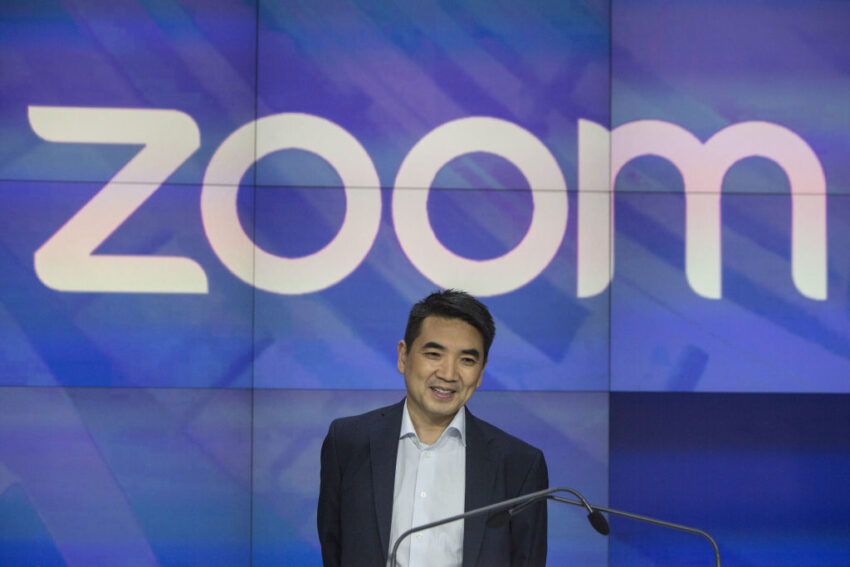
zoom ceo eric yuan says ai will Zoom’s CEO Eric Yuan has made a bold prediction regarding the future of work, suggesting that advancements in artificial intelligence (AI) could lead to a significant reduction in the traditional workweek to just three or four days.
zoom ceo eric yuan says ai will
Understanding the Shift in Work Dynamics
The concept of a shorter workweek is not entirely new; however, Yuan’s assertion brings renewed attention to the potential role of AI in reshaping labor practices. As technology continues to evolve, the nature of work is changing, prompting organizations to reconsider how they structure their operations and workforce. Yuan’s comments come at a time when many companies are exploring flexible work arrangements, driven by the lessons learned during the COVID-19 pandemic.
The Role of AI in the Workplace
Artificial intelligence has already begun to transform various industries by automating routine tasks, enhancing productivity, and enabling more efficient decision-making processes. Yuan argues that as AI technologies become more sophisticated, they will take over repetitive and mundane tasks, allowing employees to focus on higher-value work. This shift could lead to a more efficient use of time, ultimately resulting in fewer hours spent at work.
Yuan’s vision aligns with a growing body of research suggesting that a shorter workweek could lead to increased employee satisfaction and productivity. Studies have shown that when employees have a better work-life balance, they tend to be more engaged and motivated. By leveraging AI to streamline workflows, organizations could create an environment where employees can achieve their goals in less time.
Historical Context of the Workweek
The standard five-day workweek has been a cornerstone of labor practices for decades. However, it has faced scrutiny in recent years as more people advocate for flexible working conditions. The idea of a shorter workweek has gained traction in various countries, with some even experimenting with a four-day workweek model. Countries like Iceland and organizations in New Zealand have reported positive outcomes from such initiatives, including improved employee well-being and productivity.
Global Trends in Workweek Reduction
Several countries have begun to explore the feasibility of reducing the workweek. For example, in 2020, Spain proposed a pilot program to test a four-day workweek, aiming to boost productivity and improve workers’ quality of life. Similarly, in the United Kingdom, a number of companies have adopted a four-day workweek model, reporting increased employee satisfaction and retention rates.
These initiatives demonstrate a growing recognition that the traditional workweek may not be the most effective model for modern work environments. Yuan’s prediction that AI will facilitate a shift toward a shorter workweek reflects a broader trend in which organizations are rethinking their approach to work in light of technological advancements.
Implications of a Shorter Workweek
The potential transition to a three or four-day workweek raises several important questions and implications for businesses, employees, and society as a whole.
Impact on Employee Well-Being
One of the most significant benefits of a shorter workweek is the potential for improved employee well-being. With more time for personal pursuits, employees may experience reduced stress levels and increased job satisfaction. This could lead to lower turnover rates and a more engaged workforce, ultimately benefiting organizations in the long run.
Challenges for Employers
While the prospect of a shorter workweek is appealing, it also presents challenges for employers. Organizations must consider how to maintain productivity levels while reducing hours. This may require a reevaluation of workflows, performance metrics, and employee roles. Additionally, companies will need to invest in training and development to ensure that employees can effectively leverage AI tools to maximize efficiency.
Economic Considerations
The economic implications of a shorter workweek are also worth examining. A reduction in hours could lead to changes in compensation structures and labor costs. Employers may need to adjust salaries or implement new pay models to accommodate a shorter workweek while ensuring that employees remain financially secure. Furthermore, businesses must consider how to balance the need for flexibility with the demands of their clients and customers.
Stakeholder Reactions
Yuan’s comments have sparked a variety of reactions from stakeholders across different sectors. Some business leaders and economists express optimism about the potential benefits of a shorter workweek, while others raise concerns about its feasibility and impact on productivity.
Support from Advocates of Work-Life Balance
Advocates for work-life balance have welcomed Yuan’s vision, arguing that it aligns with the growing demand for flexible working conditions. Many employees have expressed a desire for more time away from work to pursue personal interests, spend time with family, or engage in self-care activities. The COVID-19 pandemic has amplified these sentiments, as remote work has allowed individuals to reevaluate their priorities and seek a better balance between their professional and personal lives.
Concerns from Traditionalists
On the other hand, some traditionalists in the business community express skepticism about the practicality of a shorter workweek. They argue that certain industries require a consistent presence of employees to meet customer demands and maintain operational efficiency. For these sectors, transitioning to a shorter workweek may pose significant challenges that could disrupt established workflows.
Looking Ahead: The Future of Work
As organizations navigate the complexities of a post-pandemic world, the conversation surrounding the future of work continues to evolve. Yuan’s prediction serves as a catalyst for discussions about how AI can reshape labor practices and improve employee experiences. While the transition to a shorter workweek may not happen overnight, the potential benefits warrant serious consideration.
Preparing for Change
To prepare for a future where AI plays a central role in the workplace, organizations must invest in technology and training. This includes equipping employees with the skills needed to effectively utilize AI tools and fostering a culture of adaptability. By embracing change and prioritizing employee well-being, businesses can position themselves for success in an increasingly competitive landscape.
The Role of Policy Makers
Policy makers also have a role to play in shaping the future of work. As discussions about a shorter workweek gain momentum, governments may need to explore legislative measures that support flexible working arrangements. This could include tax incentives for businesses that adopt shorter workweeks or funding for research on the impacts of reduced hours on productivity and employee well-being.
Conclusion
Eric Yuan’s assertion that AI will lead to a shorter workweek resonates with a growing movement advocating for improved work-life balance and employee satisfaction. While challenges remain, the potential benefits of a three or four-day workweek are significant. As organizations and policy makers explore the implications of this shift, the future of work may be poised for a transformation that prioritizes both productivity and well-being.
Source: Original report
Was this helpful?
Last Modified: October 28, 2025 at 12:40 pm
0 views















